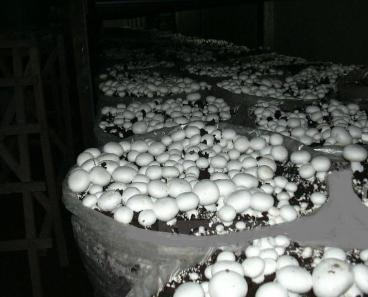
Benefits of eating mushrooms
One of the benefit is they help lower blood pressure and boost the immune system.
According to the Ministry of Agriculture and Livestock Development, mushroom farming in Kenya is a growing industry.
In Summary

The Jomo Kenyatta University of Agriculture and Technology is set to launch a smart mushroom farming initiative to boost food security and support forest conservation.
The smart mushroom farming initiative will help foster sustainable agriculture and will be undertaken by the university through its innovation hub JHUB Africa and in partnership with Mush and the KOICA Creative Technology Solution (CTS) programme.
Dr Lawrence Nderu, founder of JHUB Africa and chair of the Department of Computing at the university, said the Smart Mushroom Farming initiative is a bold step toward sustainable agriculture, climate resilience and forest conservation.
The project will produce and distribute climate-resilient mushroom spawn nationwide, equip farmers with low-cost cultivation techniques and deploy a digital platform for spawn tracking, yield optimisation and environmental monitoring.
According to the Ministry of Agriculture and Livestock Development, mushroom farming in Kenya is a growing industry, particularly for button and oyster mushrooms.
This is driven by increasing demand in urban markets and the hospitality sector. A study by the Mushroom Growers Association of Kenya shows that the industry has experienced steady growth, occasioned by increasing domestic demand and emerging export opportunities.
The study further shows that the total mushroom production reached approximately 480 tonnes in the year 2023, a 20 per cent increase from 2022 production.
Nderu said the project hub will serve as a central platform for knowledge sharing, community stories and real-time updates.
They also hope to offer “protein-rich mushrooms, reduce dependence on wood fuel and charcoal, empower youth and women through training and entrepreneurship and leverage data-driven techniques for sustainable farming”.
The community-driven project focuses on the production and nationwide distribution of high-quality mushroom spawn, empowering farmers with innovative tools, training and technology to improve food security, protect natural ecosystems and promote inclusive green livelihoods.
"This initiative is more than growing mushrooms, it's about cultivating opportunity, resilience and conservation," said Nderu.
“By empowering communities with locally adapted biotechnology and digital tools, we are redefining how sustainable farming and forest preservation can co-exist."
He added that through the support of the KOICA CTS programme, the project leverages Korean-Kenyan collaboration to scale impact.
Nderu explained that it will introduce locally produced, climate-resilient mushroom spawn, smart, low-cost cultivation techniques and digital tools for spawn tracking, yield optimisation, and environmental monitoring.
“By blending local innovation with international expertise, the Smart Mushroom Farming initiative is setting a new standard for inclusive, tech-enabled, and environmentally conscious development in Africa,” he added.

One of the benefit is they help lower blood pressure and boost the immune system.